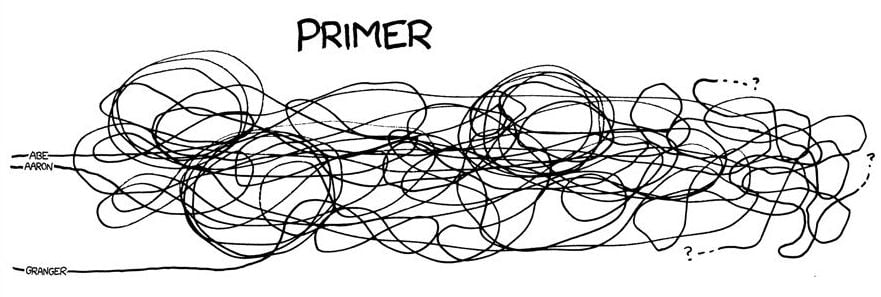Some ideas are:
- You branch off into another timeline and your actions make no difference to the previous timeline
- You’ve already taken said actions but just didn’t know about it so nothing changes
- Actions taken can have an effect (so you could suddenly erase yourself if you killed your parents)
- Only “nexus” or fixed events really matter, the timeline will sort itself out for minor changes
- something else entirely
You’ve already taken said actions but just didn’t know about it so nothing changes
12 Monkeys did this one perfectly.
You can’t change things because if you undid the thing, then there wouldn’t be a reason to undo the thing. If you go back in time, you are just going to do what you already did because that is in the past.
I’d totally forgotten about 12 monkeys. I had that VHS of this when I was 11 or 12 years old, I probably watched it 30 times and I never fully understood it. 25 years later I think it’s time for me to rewatch this
Rewatched it recently, it held up really well!
Logically speaking it’s the only way time travel can be done, and for bonus points physics wouldn’t have a problem with it.
Any Back to the Future shenanigans is just creating alternate realities, which may or may not instantly destroy the original.
Oh, I’ll have to watch that
“Default behaviors is undo, no redo. You control undo the undo. Emacs.”
I recommend undotree, which is also a non-destructive undo, but for some cases makes it easier to reach those points.
Whichever one is objectively correct based on empirical evidence.
Fun fact: time travel does exist, and I am myself a time traveler. The fact that I’m travelling at one second per second along with everyone else is just a minor detail.
Are we traveling through time? Or is time simply a universal constant of entropy? Everything you experience is energy flowing from a higher potential to a lower potential, with some “loss” to heat. Without that downward shuffle, a rock balanced on it’s tip is indistinguishable from a time-stopped version of itself.
Basically, time is your body’s sensation of the inevitable terror that is the heatdeath of the universe.
Why would it be less terrifying to be further away from a gravity well?
I think you meant this comment for a different thread.
Nope.
Okay. What did I say about gravity wells?
You implied that life would be more terrifying the faster you traveled through time, like what would happen at the bottom of a gravity well.
Where?
I have always been a fan of stable time loops so I guess option 2 is the best one for me.
One trope I’d like to see more of is loops which are not stable themselves, but are stable as a group. Eg a 2-loop has loop A in which someone goes back in time and changes history leading to a new timeline loop B. Someone in loop B later goes back in time and changes history in a way that turns the timeline back into loop A.
My headcanon is that your option 3 is basically an n-loop that we only see the first few loops of.
Its a one way trip. You can never go back to the original universe.
If it actually existed, then obviously I would subscribe to whatever theory most accurately described how it worked. That’s science.
If you’re asking which theory I would predict is most likely, knowing only that time travel was possible as a starting point, then there are only two that I’m aware of that are logically consistent. Either:
-
Single fixed timeline, whereby if you go back in time then whatever you do there was already a part of history from the start. You won’t be able to “change” anything because you were always there. This is the approach described by the Novikov self-consistency principle.
-
Multiple worlds, in which if you go back in time you just end up following a different “branch” of history forward from there.
Any of the models that let you “change your own history” are logically inconsistent and therefore utterly impossible. They just can’t exist, like a square triangle or 1=2. They may be fine for entertaining movie plots but don’t take them seriously.
I just imagine if life is a simulation and everytime someone travel back a new branch created but then coming back to present timeline you have to fix all the merge conflicts.
But what if: https://en.wikipedia.org/wiki/Square_triangular_number
Slightly more seriously (but only slightly), what if what we see as Heisenberg uncertainty and probabilistic wave/particle weirdness is actually the result of multiple overlaid timelines caused explicitly by time travel, and if time travel wasn’t possible, the universe wouldn’t have those properties?
-
- You branch off into another timeline and your actions make no difference to the previous timeline
New actions, new consequences.
This. Time traveling is a purely selfish endeavour.
Go back and kill Hitler? Congratulations! Only you understand what changed. Doesn’t help the 7 billion people you left in your original timeline.
But you now get to live in a cool alternate reality where the soviet union clashed directly with the allied forces as the axis never existed.
. . .
Kirov reporting.
I like the persistent present. We simply live with the paradoxes.
“Remember when Hitler was assassinated in 1919, 1933, 1936, and 1939, then off’d himself in his bunker in '45?”
“An unidentified man in SS uniform reportedly tried to kill Hitler during a rally at the Berlin Sportpalast.” 1939
This was definitely the time traveller.
LOL. I knew there were a lot, never looked it up! The problem is, in the time travelling paradigm, those would fit in the self-mending timeline end of the theory. This version would simply have many dead hitler. Like schroedinger’s cat or photons or whatever.
The past, present, and future do not exist as separate states.
Imagine a vast array of all possible states of matter in the universe. Imagine reality has a finite spacial resolution. With a series of numbers, or even a single very large number, you could provide a unique identifier for every possible arrangement of matter in the universe. The positions of every star and galaxy. The detailed interactions of every quark. Imagine a list or array that would have a number of entries equal to some indecent multiple of “ten to the ten to the ten…” Imagine all these possible states, every possible configuration the matter of the universe could occupy.
Then realize…All of these possible states exist at once. They are all as real as any other. There is no preferred state. They all exist in some vast “10 to the ten to the ten” dimensional spacetime. What we perceive as the flow of time is simply us moving from one of these states to another. But our consciousness cannot move arbitrarily between states. There are elaborate rules on which states you will be able to observe dependent upon the states you previously observed. We call these rules the laws of physics.
So when you travel through time, you are simply altering your path on this vast multiverse of possible realities. There is no “real” reality. They are all real. Every possible configuration of the matter and energies of the universe physically exist concurrently.
There are no timelines to split or erase, because there are no timelines. There are just conscious minds moving through a near-infinite array of possible “nows.” And all of the nows exist simultaneously. There is no real one. From the perspective of a “time traveler,” it will seem like they changed “the future.” But the truth is the very idea of a past, present, and future as distinct entities is madness. We’re just consciousness drifting through the continuum, from one of the near-infinite nows to another.
That’s a really long way to say “the first one”.
I think it’s the 2nd option
It’s just the first one, only specifically a version where all timelines exist and you simply navigate them. I can see how it might feel like the second one because the timelines already exist, but from one’s subjective viewpoint it’s #1.
I think the first one leaves open what you do, as alternate actions lead to an alternate timeline. The second is more “read-only”, similar to what OP laid out.
The only difference between the first option and the response is that the response posits that all possible timelines exist in advance and rather than generating a new timeline with your decisions, you simply navigate to the one that represents them. It’s a distinction without meaning, especially because the first option doesn’t strictly specify whether the timelines existed in advance or not. It simply says “you branch off into another timeline” with no requirement that it be one generated as a result of your actions.
The second option is called “closed loop” or Novikov self-consistency and specifically requires that the outcomes of your choices align with the past already as defined, simply in ways you did not know. It’s what they use in 12 Monkeys and the 3rd Harry Potter book, and it limits free choice, unlike the first option and what the above poster’s response stated.
I think what you’re doing is combining closed-loop and multiverse theories to say that the multiverse theory IS closed-loop simply because the multiverses existed in advance, whereas closed-loop is intrinsically single universe/timeline.
I appreciate those detailed insights, I see where I misunderstood. I need to reread the 3rd HP novel with my son now :)
It’s my favorite of the series, though I hate what JK Rowling turned into. Hope you and your son enjoy!
Primer because Primer. (Video warning and some spoilers for a bunch of different films.)
I don’t know if I would subscribe to it, but it is one of the more interesting ideas for time travel.
Primer spoilers, kinda, xkcd style:

I don’t need anymore subscriptions, thank you.
The one where you can only jump forward, not backward. It avoids the common paradoxes.
we already live in that one
See? Problem solved.
I believe it’s impossible in the real universe.
Sure there are solutions of general relativity that contain time loops, but they require stuff like an infinitely long cylinder, or escaping a spinning black hole, or negative energy. I just don’t believe beings made of finite matter and with finite energy will ever be able to time travel (except into the future at various rates) and that’s the only kind of beings I think exist.
But my question was if it was possible. Not do you believe it’s possible.
You’re right.
It would have to be multiple timelines or single consistent history. Of the two, I think multiple timelines is a little more likely.
You are currently correct. Things change.
Time travel does exist, but you can only go forward. You just need to approach the speed of light relative to a frame of reference, and you will travel a shorter time span compared to it.
My personal favorite?
Space and time is an infinite number of parallel realities that constantly compress and unravel at every possible random chance. We are 4th (or 3.5th) dimensional beings that experience the most probable result aggregated from an infinite existence. If you time travel back in time, and change the past, it would not affect the your past, but it would affect your future, if you time traveled back to your current time.
I subscribe to multiverse theory. It’s probably the safest route and probably most likely.











